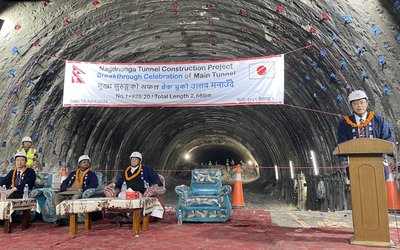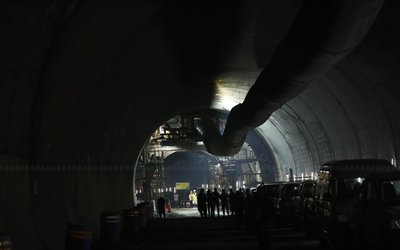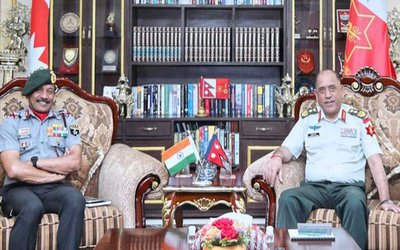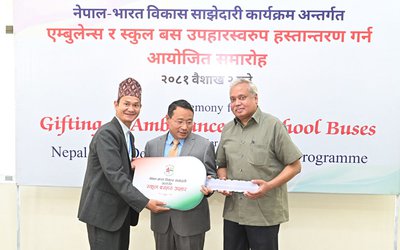A big gathering of representatives from more than 70 countries around the world was talking about the most important issues concerning the Clean Development Mechanism (CDM). Yet only a few people seemed to have noticed what was going on. The issues they debated for four days in three different workshops sounded serious and significant, especially for the least developed countries like Nepal. The organizers spent less time in formalities than holding discussions.
Chief Secretary Madhav Prasad Ghimire opened the first one and a half day’s workshop on the Standardized Baselines. This session discussed rather esoteric sounding issues, including the understanding of the new guidelines on standardized baselines, the challenges and ways forward, guidelines for the development of standardized baselines, and held panel discussions on guidelines for establishment of sector specific standardized baselines, building capacity and enhancing understanding.
The workshop also discussed procedures for submission of standardized baselines and reviewed their suitability. Similarly, cases studies on standardized baselines were presented and reviewed for their suitability and adequacy of procedures and guidelines.
In another DNA Regional Forum, representatives from Asia and the Pacific Region discussed the guidelines for demonstrating additional aspects of micro-scale project activities. They also discussed regulatory framework development with respect to the guidelines for demonstrative additional micro scale project activities and DNA perspective on the implementation of the guidelines. They also discussed modalities of DNA interaction with an executive board update on modalities of communication of the board with DNAs.
Program of activities (PoAS) and updated regulatory framework development and multi-country PoAS included cooking stoves program in Asia.
Representatives from Asia and the Pacific also discussed CDM issues in the regional workshop. The papers were presented on development of standardized baseline. Panels discussed pilot cases on SB- waste management, compost project, biomass gasification, bur, and rapid transport replacement of energy efficient boilers. They also addressed challenges in CDM project development and management, common reasons for delays and rejections of CDM projects. They also made analysis of projects to identify reasons for the delay in the validation and issuance stage as well as identifying practical solutions and proposals to the CDM EB efforts initiated to remove the bottlenecks.
Inaugurating the workshop, chief secretary Madhav Prasad Ghimire expressed his appreciation to the Secretariat of the UN Framework Convention on Climate Change, particularly the Stakeholder Collaboration Team, for giving the opportunity to host the Stakeholder Consultation on Standardized Baselines under the Clean Development Mechanism.
“I believe that in addition to this global consultation program, the CDM workshop and DNA Forum of the Clean Development Mechanism for Asia and the Pacific will provide additional benefits to the participants to share knowledge and experiences on best practices, identify the barriers to replicate them, and also develop a common understanding to make the most out of the Clean Development Mechanism under the Kyoto Protocol,” said Ghimire.
“This workshop will help understand the standardized baselines and CDM and Regional DNA forum,” said Robert Piper, United Nations Resident and Humanitarian Coordinator for Nepal.
Although Nepal has several possibilities to get the benefits from the CDM, it is yet to reap them. Nepal’s hydropower projects can be suitable for CDM. Nepal has not been benefiting from the CDM provisions to the desired extent. It might have been due to adoption of clean energy which reduces opportunities to replace the fossil fuel based energy.
“This baseline should not be a barrier to promote CDM projects,” said Krishna Gyawali, secretary to Ministry of Environment. “At this point, I would like to urge the Parties to the Kyoto Protocol to advise a special mechanism that supports the Least Developed Countries, Small Island Developing countries and mountainous countries to benefit from CDM projects taking into consideration their climate vulnerabilities and baseline as well.”
At the event organized by the Ministry of Environment and UNFCC, Batu Krishna Uprety, joint secretary (Technical) Climate Change Management Division, welcomed the participants. Similarly Massamba Thioye, Manger, of Sustainable Development Mechanisms, UNFCC also highlighted the importance of the workshop.
- TANAHU HYDROPOWER PROEJCT: A Significant Achievement
- Apr 15, 2024
- AMBASSADOR HANAN GODAR: Sharing Pain With A Nepali Family
- Mar 30, 2024
- VISIT OF KfW AND EIB TO NEPAL : Mission Matters
- Mar 25, 2024
- NEPAL BRITAIN SOCIETY: Pratima Pande's Leadership
- Mar 24, 2024
- NEPAL ARMY DAY: Time To Recall Glory
- Mar 15, 2024
















